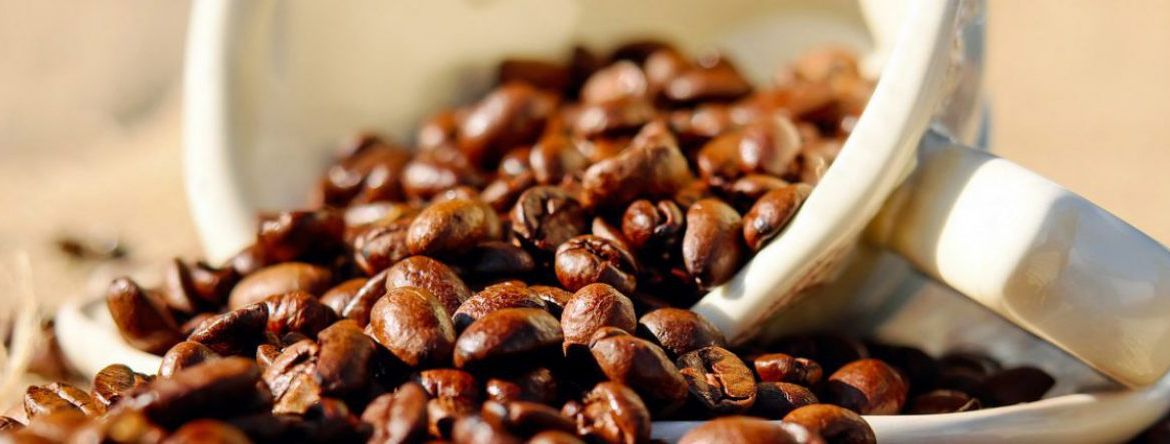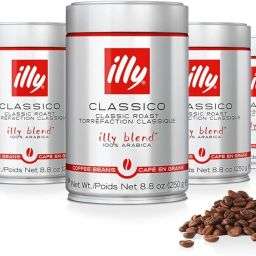
Portuguese coffee, renowned for its unique blend and rich flavor profile, stands out in the global coffee scene. A distinctive feature of Portuguese coffee is its blend of Arabica and Robusta beans. Arabica beans, known for their sweet, soft taste with hints of fruit and sugar, provide a smooth and aromatic experience. Robusta beans, on the other hand, add body and a chocolatey or slightly bitter taste, contributing to the coffee’s intensity and richness.
Another hallmark of Portuguese coffee is the slow roasting process. This method enhances the flavor and aroma of the beans, allowing for a more controlled and even roast. The result is a creamy, low-acid coffee with a thick mouthfeel that is both robust and smooth. This meticulous approach to roasting ensures that each cup of Portuguese coffee delivers a complex and satisfying taste experience, setting it apart from other coffee traditions.
Key Takeaways
- History of Coffee Culture in Portugal: Coffee culture in Portugal has evolved over centuries, with its roots intertwined with Portuguese exploration and trade. The tradition of coffee drinking is a staple of Portuguese daily life, reflecting the country’s rich history and its connections to its former colonies.
- Types of Coffee Beans Used: Portugal’s coffee blend uniquely combines Arabica and Robusta beans, sourced from various parts of the world. This blend is carefully chosen to create a balance between sweetness and intensity, embodying the essence of Portuguese coffee.
- Coffee Making Process: Portuguese coffee is characterized by its slow roasting process and the art of espresso making. Traditional drinks like Galão and Bica showcase the skillful preparation that goes into each cup, highlighting the deep appreciation for quality coffee in Portugal.
- Best Portuguese Coffee Brands: Portugal is home to several renowned coffee brands, such as Sical, Nicola, Delta, and Buondi. Each brand has its unique history and approach to coffee making, contributing to the rich diversity of Portuguese coffee available both locally and internationally.
This introduction to Portuguese coffee beans sets the stage for a deeper exploration into the vibrant coffee culture of Portugal, inviting coffee enthusiasts to discover the rich flavors and traditions that make Portuguese coffee truly exceptional.
The Rich History of Portuguese Coffee Culture
The origins of Portuguese coffee culture can be traced back to the 15th and 16th centuries, during Portugal’s Age of Discoveries. As Portuguese explorers ventured into Africa, Asia, and the Americas, they encountered coffee and brought it back to Europe. Initially a luxury for the elite, coffee gradually became a staple in Portuguese society.
By the 18th century, coffee had entrenched itself in the Portuguese way of life, with Lisbon and Porto becoming hubs for coffee aficionados. The establishment of coffee houses became central to social and intellectual gatherings, where poets, politicians, and thinkers would convene to discuss the pressing matters of the day. This tradition cemented coffee’s role not just as a beverage but as an essential part of the cultural and social fabric of Portugal.
Portuguese Coffee Brands and Their Offerings
Sical: Established in 1947, Sical has become one of Portugal’s most beloved coffee brands. Acquired by Nestlé in 1987, Sical has a broad distribution network, making it accessible both domestically and internationally. Known for its blend of Arabica and Robusta beans, Sical offers a range of roasts from medium to dark, catering to various tastes with its light, creamy, yet earthy coffee.
Nicola: With roots stretching back to 1779, Nicola is one of Portugal’s oldest coffee brands. Originating from Lisbon, Nicola Cafés has played a significant role in the country’s coffee culture, historically frequented by influential poets and writers. Today, Nicola offers a selection of ground beans, coffee grounds, and coffee pods, known for its strong and full-bodied coffee that honors its rich heritage.
Delta: Delta is arguably the most renowned coffee brand in Portugal, with over 40 years of history. It offers a selection of high-quality labels, including Delta Ouro, Platina, and Diamante, each selected from the finest Arabica and Robusta beans. Delta’s coffee is celebrated for its intense, full-bodied flavor and smooth consistency, making it a favorite among Portuguese coffee drinkers.
Buondi: A relatively young brand founded in 1986, Buondi quickly captured the hearts of Portugal’s youth, especially within the surfing community. Its blend predominantly favors Arabica beans, resulting in smoother coffee. Buondi stands out for its commitment to sustainability and eco-friendly practices, offering organic options in its product line. The brand’s popularity is bolstered by its involvement in sponsorships and events, reinforcing its modern and dynamic image.
These brands represent the diversity and richness of Portuguese coffee culture, each with its unique history, approach to roasting, and commitment to quality, reflecting Portugal’s deep love affair with coffee.
The Art of Making Portuguese Coffee
The traditional methods of brewing Portuguese coffee are deeply rooted in the country’s rich coffee culture. Two of the most beloved coffee drinks in Portugal are the Galão and Bica, each with its own unique preparation method and serving tradition.
Galão is essentially a Portuguese latte, made with one part coffee to three parts foamed milk. It’s typically served in a tall glass and is a popular morning drink, often accompanied by a pastry. To make a Galão at home, start by brewing a strong espresso. Then, steam milk until it’s frothy and pour it over the espresso in a tall glass, maintaining the one-to-three coffee-to-milk ratio.
Bica is the Portuguese term for a standard espresso. It is a simple yet powerful coffee shot, known for its strong and intense flavor. Brewing a Bica involves using a high-quality espresso machine to extract the coffee directly into a small cup, capturing the essence of the richly roasted beans. This drink is often enjoyed throughout the day, serving as a quick caffeine fix.
Exploring the Best Coffee Shops in Lisbon
Lisbon is home to numerous iconic coffee shops, each with its own charm and history.
A Brasileira is one of the most famous coffee shops in Lisbon, known for its historical significance and as a gathering place for intellectuals and artists in the 20th century. Located in the Baixa-Chiado area, it boasts stunning interior decor and an outdoor seating area where patrons can enjoy their coffee next to a statue of the poet Fernando Pessoa.
Café Nicola is another historic coffee shop situated in Rossio. It has been a beloved spot among Lisboetas for centuries, particularly favored by older generations. The café offers a view of the D. Pedro IV square, allowing guests to soak in the local architecture and bustling city life while enjoying a traditional Portuguese coffee.
The Global Reach of Portuguese Coffee
Portuguese coffee brands have successfully expanded their reach beyond national borders, establishing a significant presence on the international stage. This global expansion has been largely driven by strategic partnerships and a commitment to fair trade practices.
Brands like Delta and Nicola have leveraged their rich heritage and reputation for quality to enter new markets, often partnering with local distributors to facilitate their international growth. These partnerships have enabled Portuguese coffee to be enjoyed worldwide, from Europe to the Americas and Asia.
Moreover, the adoption of fair trade practices by Portuguese coffee brands has played a crucial role in their global expansion. By ensuring that coffee farmers receive a fair price for their beans, these brands have been able to secure a sustainable supply of high-quality coffee while also appealing to ethically conscious consumers around the world.
FAQs
When is the best time to drink Portuguese coffee? The best time to drink Portuguese coffee varies by personal preference and local customs. Traditionally, a robust espresso or a Bica is enjoyed throughout the day for a quick energy boost, while Galão, a milky coffee, is often favored in the morning or as an afternoon treat. After lunch is another popular time, helping to digest the meal and refresh for the afternoon.
Should I have my Portuguese coffee with sugar or black? Portuguese coffee is typically served with a packet of sugar, allowing individuals to sweeten their drink to taste. While many locals enjoy their coffee black to savor the rich flavors of the beans, adding sugar is common and entirely a matter of personal preference.
Why ask for a glass of water with your espresso? Asking for a glass of water with your espresso is a customary practice in Portugal. The water is intended to cleanse the palate before or after drinking the coffee, enhancing the tasting experience. It also helps to stay hydrated, as coffee can be dehydrating.
Final Thoughts
Portuguese coffee is a testament to the country’s rich history, diverse culture, and unparalleled dedication to the craft of coffee making. From the robust and intense flavors of a Bica to the creamy smoothness of a Galão, Portuguese coffee offers something for everyone.
The tradition of enjoying coffee in Portugal goes beyond mere consumption; it’s an integral part of daily life and social interaction. This exploration invites coffee enthusiasts to delve deeper into the world of Portuguese coffee, whether through tasting the various blends and brews or visiting the historic coffee shops of Lisbon.
Embracing Portuguese coffee is an opportunity to experience a rich cultural tradition that has been brewed to perfection over centuries.









